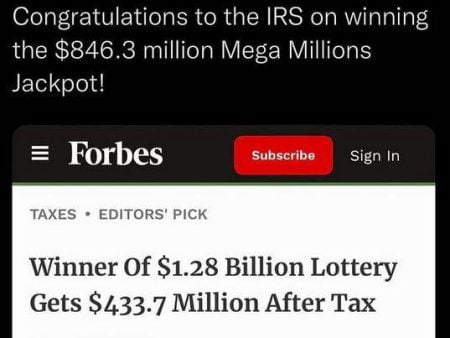Powerball Numbers Tonight: Unveiling the Winning Combination and Jackpot Insights Top Ten Lottery
Powerball Numbers Tonight: Unveiling the Winning Combination and Jackpot Insights
Powerball Numbers Tonight: Unveiling the Winning Combination and Jackpot Insights
Every week, millions of hopeful participants eagerly await the reveal of the Powerball numbers tonight, dreaming of the life-changing possibilities that come with a winning ticket. The anticipation reaches a fever pitch as the clock ticks down to the drawing, where fortunes can be made in an instant. In this article, we will not only unveil the winning combination but also provide in-depth insights into the current jackpot, offering you a closer look at what it means to hit it big in one of the world’s most exciting lotteries. Whether you’re a seasoned player or new to the game, join us as we delve into the thrilling world of Powerball and explore what tonight’s numbers could mean for your future.
Understanding the Powerball game mechanics is essential for anyone looking to participate in this popular lottery. Powerball is a multi-state lottery game in the United States, and its allure lies in the massive jackpots that can accumulate over time. To play, you need to select five numbers from a pool of 1 to 69 and one Powerball number from a separate pool of 1 to 26. Each ticket costs $2, and players have the option to add the Power Play feature for an additional $1, which can multiply non-jackpot prizes by up to 10 times.
Winning the Powerball requires matching the drawn numbers with those on your ticket. The odds of hitting the jackpot are approximately 1 in 292.2 million, but there are nine different ways to win, ranging from matching just the Powerball (which wins you $4) to matching all five numbers plus the Powerball. The overall odds of winning any prize are 1 in 24.87, making it accessible for even casual players to walk away with some winnings.
The Powerball drawing occurs twice a week, on Wednesday and Saturday nights. The excitement peaks as participants eagerly await the results, which are broadcast live and subsequently posted on various platforms, including official Powerball websites and social media channels. Understanding these mechanics can enhance your playing experience and help manage expectations while participating in this thrilling game of chance.
Analyzing historical trends in Powerball winning numbers can offer valuable insights for avid players and curious observers alike. Over the years, certain numbers have appeared more frequently than others, sparking interest in whether these patterns can influence future outcomes. For instance, numbers like 26, 41, 16, and 22 have historically appeared frequently among the winning combinations. However, it’s important to remember that Powerball is a game of chance, and each drawing is independent of the previous ones, meaning past results don’t predict future outcomes.
By examining these trends, players might feel more informed when selecting their numbers. Some use this data to choose “hot” numbers that have been drawn frequently or “cold” numbers that haven’t appeared in a while, hoping they are due for a win. While there is no guaranteed strategy for winning Powerball, understanding these historical trends can make the game more engaging and provide a sense of control over the randomness of the draw.
For those looking to dive deeper into the statistics, numerous online resources offer comprehensive databases of past winning numbers and their frequencies. These tools can help you identify patterns and make more informed choices when purchasing your next Powerball ticket. Remember, while trends can be fascinating to explore, the essence of Powerball remains in the thrill of chance and the possibility of life-changing rewards.
When it comes to lottery games, understanding the odds of winning can help you make more informed decisions. Powerball, one of the most popular lotteries in the United States, offers staggering jackpots but also comes with long odds. Specifically, the odds of winning the Powerball jackpot are approximately 1 in 292.2 million. While this might seem daunting, it’s essential to remember that Powerball also provides multiple prize tiers, with overall odds of winning any prize standing at 1 in 24.87. This means that even if you don’t hit the jackpot, there are still plenty of opportunities to win smaller but significant prizes.
Comparing these odds to other lotteries can provide valuable context. For instance, Mega Millions, another major U.S. lottery, has jackpot odds of about 1 in 302.6 million, slightly longer than those of Powerball. On the flip side, state lotteries often feature better odds but typically lower jackpots. For example, New York’s Lotto has jackpot odds around 1 in 45 million, making it easier to win compared to Powerball but with smaller prize pools.
Ultimately, while playing the lottery is a game of chance with no guarantees, understanding the odds can help set realistic expectations and enhance your overall experience. By comparing Powerball’s odds with other lotteries, you can choose the game that best aligns with your risk tolerance and jackpot aspirations. Whether you’re dreaming of a multi-million-dollar windfall or simply enjoying the excitement of the draw, knowing your odds is a crucial part of responsible and enjoyable lottery play.
When it comes to choosing your Powerball numbers, employing a few strategic approaches can add an element of fun and potentially increase your chances of winning smaller prizes. One popular strategy is the “hot and cold numbers” method. Hot numbers are those that have been drawn frequently in recent Powerball drawings, while cold numbers are those that haven’t appeared in a while. By analyzing historical data, you can decide whether to bet on hot numbers continuing their streak or cold numbers making a comeback. While this doesn’t guarantee a win, it can make the process more engaging and informed.
Another effective strategy is to avoid common number-picking patterns. Many people tend to choose dates of significance, such as birthdays or anniversaries, which limits their number range to 1-31. By selecting numbers beyond this range, you minimize the chance of having to share your winnings with others who picked similar combinations. Additionally, avoid sequences or patterns on the ticket slip, such as all even or all odd numbers, as these are also commonly chosen.
Lastly, consider using a balanced mix of high and low numbers. The Powerball number pool ranges from 1 to 69, and by choosing a spread of both high and low numbers, you cover more possibilities. Some players prefer using random number generators or Quick Picks for this purpose, trusting in the randomness of the draw. Remember, while no strategy can predict the outcome with certainty, these methods can make your number-picking process more deliberate and enjoyable.
Winning the Powerball jackpot is a dream come true for many, but it’s crucial to understand the impact of taxes on your newfound wealth. When you win a large lottery prize, the IRS treats it as income, subjecting it to federal taxes. As of 2023, federal tax laws require an automatic withholding of 24% on lottery winnings over $5,000. However, depending on your total income for the year, your actual tax liability may be higher, potentially reaching up to 37%. This means that if you win a $100 million jackpot, you might only see around $63 million after federal taxes are deducted.
In addition to federal taxes, state taxes can significantly impact your Powerball winnings. Each state has its own tax rates and rules regarding lottery prizes. For instance, states like California and Florida do not impose state taxes on lottery winnings, while others like New York can take up to an additional 8.82%. Therefore, it’s essential to factor in both federal and state tax obligations when calculating your net prize. Consulting with a financial advisor or tax professional can provide personalized insights and strategies to manage your windfall effectively.
Understanding the tax implications is vital for making informed decisions about your Powerball winnings. Proper planning can help you maximize your net gain and ensure long-term financial stability. Whether you choose a lump-sum payout or an annuity spread over 30 years, being aware of the tax landscape can guide you in making choices that align with your financial goals and obligations. By staying informed, you can better enjoy the thrill of winning while securing your financial future.
The tales of past Powerball winners are as varied and fascinating as the game itself, offering valuable lessons and insights into the life-changing impact of a jackpot win. One of the most notable stories is that of Gloria Mackenzie, an 84-year-old woman from Florida who won a staggering $590.5 million in 2013. Despite her newfound wealth, Gloria chose to maintain a low profile, opting for a simple life while generously donating to various causes, including significant contributions to her local school district. Her story underscores the importance of humility and philanthropy even in the face of immense fortune.
Another compelling journey is that of Mavis Wanczyk, a Massachusetts hospital worker who won $758.7 million in 2017, the largest single-ticket Powerball jackpot at the time. Mavis immediately quit her job and embraced her new life with a focus on financial security and personal happiness. Her win highlights the emotional rollercoaster that often accompanies such a windfall, from the initial shock to the eventual joy and relief of financial freedom. Mavis’s story serves as a powerful reminder to plan wisely and prioritize personal well-being after winning big.
These stories not only captivate our imaginations but also provide practical insights into managing sudden wealth. From strategic financial planning to charitable giving, past winners’ journeys offer valuable lessons for future Powerball participants. By learning from their experiences, players can better navigate their own potential wins, ensuring that their newfound fortune brings long-term happiness and stability.
Claiming your Powerball prize can be a thrilling yet daunting experience, especially if you’re not familiar with the process. Here’s a step-by-step guide to help you claim your winnings smoothly. First, make sure to sign the back of your winning ticket immediately to establish ownership. Then, check the specific rules in the state where you purchased your ticket, as each state has its own regulations and deadlines for claiming prizes. Smaller prizes, typically those under $600, can often be claimed at authorized retailers or lottery offices. For larger prizes, you may need to visit a lottery headquarters or mail in your ticket.
Next, decide whether you want to receive your prize as a lump sum or an annuity spread over 30 years. Each option has its pros and cons, so consider consulting with a financial advisor to make an informed decision. If you’re claiming a significant jackpot, it’s also wise to assemble a team of professionals, including an attorney and tax advisor, to help manage your newfound wealth effectively and ensure you meet all legal and tax obligations.
Finally, submit your claim form along with your signed ticket and any required identification documents. Keep copies of everything for your records. Once your claim is validated, you’ll receive your prize according to the payout option you selected. By following these steps and seeking professional guidance, you can navigate the prize-claiming process confidently and make the most of your Powerball winnings.
The role of multi-state lotteries in the Powerball system is pivotal to its massive appeal and record-breaking jackpots. Powerball is a collaborative effort among 45 U.S. states, the District of Columbia, Puerto Rico, and the U.S. Virgin Islands, pooling resources and ticket sales to create one of the largest and most exciting lottery games in the world. This multi-state collaboration allows for higher ticket sales and, consequently, larger jackpot prizes that can skyrocket into the hundreds of millions or even billions of dollars. This joint effort not only boosts the prize pool but also enhances the game’s visibility and accessibility, making Powerball a household name across America.
The multi-state nature of Powerball also means that the revenue generated from ticket sales benefits a wider range of public programs and services. Each participating state uses its share of lottery proceeds to fund various initiatives, such as education, infrastructure, and public health programs. This creates a win-win scenario where players get a shot at life-changing prizes while contributing to the welfare of their communities. The collective approach ensures that even if one state experiences lower ticket sales, the overall pool remains robust, maintaining Powerball’s reputation for offering substantial jackpots.
In simple terms, multi-state lotteries like Powerball thrive on collaboration and shared benefits. By joining forces, states can offer more significant prizes and better odds of winning smaller rewards, making the game more attractive to players. This synergy not only fuels the excitement surrounding Powerball but also drives substantial financial support for essential public services across multiple states. Whether you’re a seasoned player or new to the game, understanding the role of multi-state lotteries can deepen your appreciation for what makes Powerball such a unique and impactful lottery system.
Winning the lottery can be a life-changing event, not only for the winner but also for communities and charitable organizations. Many Powerball winners choose to give back by donating a portion of their winnings to various causes. These charitable contributions can make a significant difference, funding essential services such as education, healthcare, and disaster relief. By sharing their newfound wealth, winners can support initiatives that improve the quality of life for countless individuals, creating a ripple effect of positive change.
The impact of these donations is profound. For example, substantial gifts to educational institutions can provide scholarships, enhance facilities, and fund research projects that benefit students and society at large. Donations to healthcare organizations can support medical research, expand access to care, and improve patient outcomes. Even small contributions can have a meaningful impact when combined with other donations, showcasing the power of collective philanthropy.
Moreover, many states allocate a portion of lottery revenues to public programs, ensuring that even those who don’t win directly benefit from the lottery’s success. This funding supports infrastructure projects, public safety initiatives, and community development programs that enhance overall well-being. In essence, lottery winnings have the potential to create lasting community impact through charitable giving and public funding, transforming dreams into tangible benefits for society. By understanding this dynamic, players can appreciate how their participation in Powerball contributes to broader social good.
Suddenly becoming a millionaire through a Powerball win can be an exhilarating yet overwhelming experience, bringing about a complex mix of psychological effects. While the initial euphoria of financial freedom might be overwhelmingly positive, many winners also encounter unexpected challenges. The sudden influx of wealth can disrupt personal relationships, lead to feelings of isolation, and create anxiety about managing and preserving the newfound fortune. It’s not uncommon for winners to struggle with the pressure of making wise financial decisions and the fear of losing their wealth, which can significantly impact their mental well-being.
Moreover, the lifestyle changes that come with sudden wealth can be disorienting. Winners may experience a shift in their social circles and encounter people who view them differently, either with envy or as a source of financial support. This can lead to trust issues and a sense of vulnerability. To navigate these psychological effects, it’s crucial for new millionaires to seek professional advice from financial advisors and mental health experts. Building a support system that includes trusted friends, family, and professionals can help mitigate the emotional toll and ensure a balanced approach to managing newfound wealth.
In simple terms, while winning the lottery can bring immense joy and opportunities, it’s essential to be aware of the potential psychological impacts. Preparation and professional guidance can help winners handle the emotional rollercoaster that often accompanies sudden wealth, ensuring they make the most of their windfall while maintaining their mental and emotional health. Understanding these effects allows winners to better navigate their new reality and enjoy their winnings responsibly and sustainably.
Powerball numbers tonight








